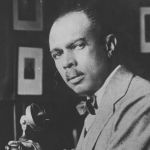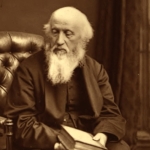Lie down—lie down!—my noble hound,
That joyful bark give o’er;
It wakes the lonely echoes round,
But rouses me no more—
Thy lifted ears, thy swelling chest,
Thy eyes so keenly bright,
No longer kindle in my breast
The thrill of fierce delight;
When following thee on foaming steed
My eager soul outstripped thy speed—
Lie down—lie down—my faithful hound!
And watch this night by me,
For thee again the horn shall sound
By mountain, stream, and tree;
And thou along the forest glade,
Shall track the flying deer
When cold and silent, I am laid
In chill oblivion here.
Another voice shall cheer thee on,
And glory when the chase is won.
Lie down—lie down!—my gallant hound!
Thy master’s life is sped;
Go—couch thee on the dewy ground—
’Tis thine to watch the dead.
But when the blush of early day
Is kindling up the sky,
Then speed thee, faithful friend, away,
And to thy mistress hie;
And guide her to this lonely spot,
Though my closed eyes behold her not—
Lie down—lie down!—my trusty hound!
Death comes, and we must part—
In my dull ear strange murmurs sound—
More faintly throbs my heart;
The many twinkling lights of heaven
Scarce glimmer in the blue—
Chill round me falls the breath of even,
Cold on my brow the dew;
Earth, stars, and heavens, are lost to sight—
The chase is o’er!—brave friend, good night!—





















Comment form: